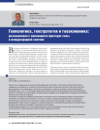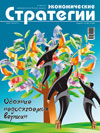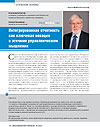Geopolitics, Geostrategy and Geoeconomics: Reflections on the Changing Force Factors in the International System
DOI: 10.33917/es-3.169.2020.30-41
Beginning the article with reminding some basic definitions of geopolitics, correlation of spatial and temporal components herein as well as the systemic nature of geopolitics as a science and the basis for a long-term political strategy, the author proceeds to the topic of relationship between geopolitics and geoeconomics, particularly significant in recent decades. He puts forward the idea that geoeconomics today is an increasingly dynamic and actively driving element in this dyad due to growing technological innovations, increasing competition and subsequent rising complexity of economic strategies of states. Based on well-known examples of economic and political outcomes of applying the state capitalism models or liberal economy, in particular, in the countries that have undergone a radical breakdown of their former economic systems (Russia is also briefly mentioned in this context), the author concludes that it is necessary to form a strategic state, able to develop a sustainable mechanism (including economic intelligence) for development and implementation of national geoeconomics. To support the provisions put forward in the article, the author, as an independent expert, gives a broad outline of geopolitical and geoeconomic shifts in the world in the coming decades.





